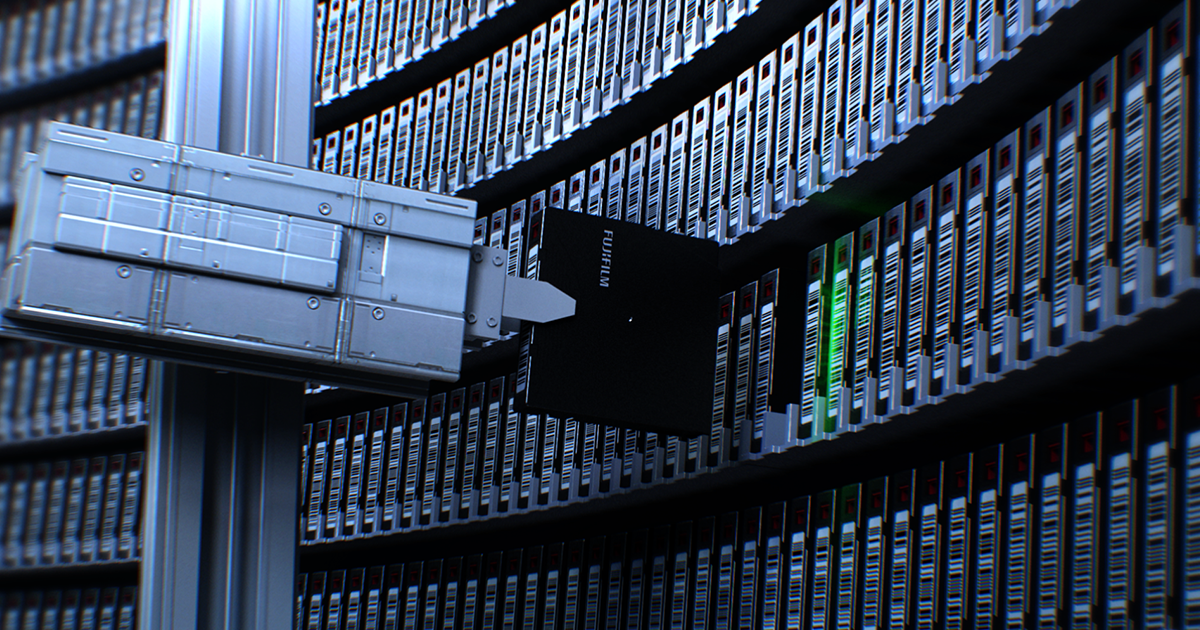Why Should Businesses Consider Tape Storage for Sensitive Data?

Data security has become essential for organizations. In today’s data-driven world, businesses have to ensure that critical information is protected from unauthorized access while managing storage costs effectively.
Tape storage offers numerous unique benefits for managing data. It provides valuable advantages that can enhance a business’s data management strategy. Now, let us explore why tape storage should be a key component of every company data management plan and examine its advantages.
Enhanced Security for Sensitive Data
Advanced Encryption and Data Protection
Any firm must achieve secure data storage, especially in the case where the data in question is either confidential or sensitive. Tape storage systems provide strong encryption features for data that is stored whether on the tape or even in transit.
Available tape drives and libraries incorporate different encryption levels along with AES (Advanced Encryption Standard) that ensures protection from violations and other unauthorized actions. Particularly when complying with strict regulations in industries such as finance and healthcare it is critical to be highly encrypted.
Physical Security and Access Control
Tape storage also outperforms disk storage in the protection of tangible assets. Unlike other media such as online or cloud storage where the data is accessed from the internet. Backing up is done on the cloud; tapes are offline media and require a physical way to be accessed.
This feature reduces the probability of cyber-attacks like ransomware and hacking that mainly affect online systems substantially. Also, the tapes can be placed in a locked safe or in a locked cabinet to prevent theft and any form of physical interference. The detachment of tapes from other network infrastructures turns out to be an added safety measure.
Cost-Effectiveness in Data Management
Lower Costs Compared to Other Storage Solutions
Tape storage is also relatively cost-effective for this reason, it can be considered as one of the most attractive benefits for businesses to use tape storage. Tape systems are traditionally less expensive initially and in terms of ongoing use as compared to SSDs or cloud storage.
Tape storage per terabyte is relatively cheaper and can be used to store large volumes of data more cheaply than in other storage media. It means that for organizations dealing with huge volumes of data in their operations, the use of tape storage systems allows for the company’s expenses to be more controlled.
Long-Term Savings and Value
The use of tape storage brings durability in the long run apart from the initial cost advantages. Unlike hard drives and SSDs, which may need replacement from time to time, tapes have a longer life cycle as well as a lower maintenance ratio.
Unwound tapes, when stored and kept in good condition, last for decades, reducing the firm’s expenses and frequent replacements of gears. This in turn has several benefits, specifically for companies that have to store large amounts of data and so require a data storage solution that will last.
Scalability and Flexibility for Growing Data
Easy Expansion of Storage Capacity
Scaletity is an existing aspect in businesses mainly experiencing growth of their data. Tape storage systems are also favorable due to the high level of scalability. Additionally, demands for data chiefly escalate, organizations can often integrate more tapes into their current library instead of acquiring new hardware equipment.
This design is the modularity of the structure which makes it easy to extend without necessarily providing new structures. To sum up, you want to note that using tape storage is a flexible solution to the constantly increasing data volumes.
Adapting to Increasing Data Volumes
Tape storage is also flexible, especially in the current era where data is highly critical in businesses. As data volume increases, it is easy to expand the use of tape storage to meet business requirements. This feature allows businesses to bring in incremental changes that can support the new data requirements without bringing in a lot of changes.
Longevity and Reliability of Tape Storage
Extended Data Lifespan and Preservation
Tape storage is a solution that is notable for its stability and durability as the form of storage that preserves data on tapes. It is highly resistant to physical impacts as well as to deterioration through time.
The longevity of this medium proves advantageous for storing records and historical information that requires long-term retention. Tape storage is also useful for organizations which mandatorily have to keep records set by the laws on data retention or need to archive files for the sake of historical documentation.
Consistent Data Integrity Over Time
Data integrity is important in business offices which have large quantities of information. The new generation of tape systems has been designed to incorporate check-sum, checksumming, and correcting them.
These technologies reduce the probability of data spoliation and guarantee that data expatriated from tapes has not been corrupted in the process. Many businesses are concerned with the issue of data integrity by which they can trust their historical records.
Conclusion
Tape storage offers numerous benefits that place it well for organizations, which deal with sensitive information. The features such as security, its cost, how it can be scaled, and how long it lasts make it a good addition to a company’s data storage approach. This article sought to establish the practicality and economics of adopting tape storage in the modern business environment.
To discover whether the technological holding could offer excellent in the management of even sensitive data. While using tape storage is the best way to enhance the data protection strategy, it is also the most cost and environmentally efficient approach for visionary companies.
Read More: What Are the Key Features of Software-Defined Storage and SAN Storage Together?





